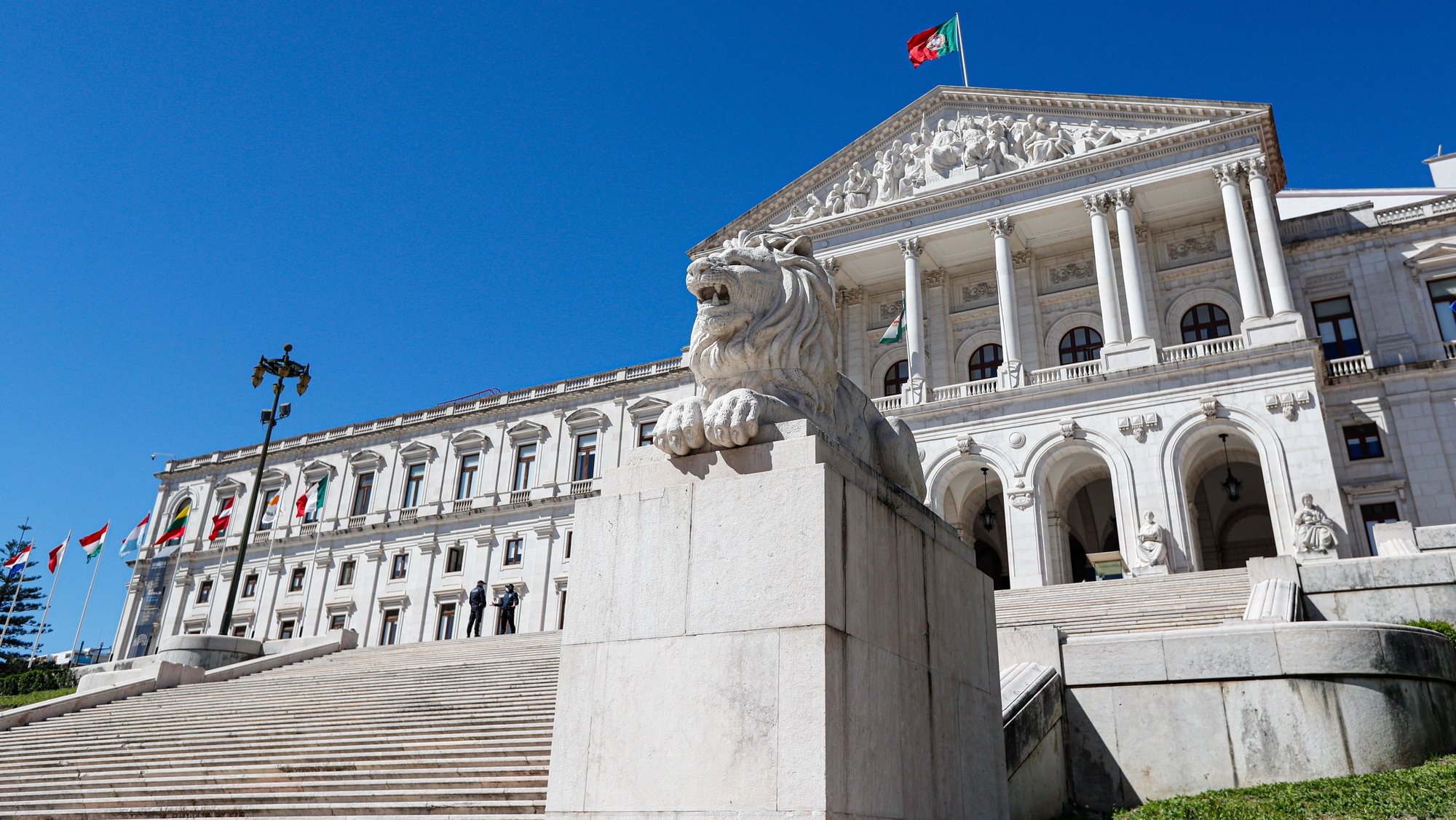Two hundred years ago the Constitution of 1822 was signed and the Assembly of the Republic will inaugurate this Friday a public exhibition with several “pieces” of parliamentary history that culminated in the first Portuguese fundamental law, “daughter” of the liberal revolution.
Brush in hand and extreme attention to detail, Alexandra Santos, conservator-restorer, fills in various gaps in a gilded frame, illuminated by the light that passes through the glass dome of the Sala dos Passos Perdidos, in the Assembly of the Republic.
The frame shows the study carried out by José Veloso Salgado in 1920 of the painting that is now found above the Sala das Sessões, the main scene of the most important political debates in the country, and which represents the meeting of the Constituent Courts of 1821, convened after of the liberal revolution of the previous year, in Porto.
This Friday, the Assembly of the Republic commemorates in a solemn session, with the participation of the President of the Republic, Marcelo Rebelo de Sousa, the bicentennial of the 1822 Constitution, signed precisely on September 23 of that year.
Shortly after, the exhibition “The First Portuguese Constitution — 1822” will be opened by the President of Parliament, Augusto Santos Silva, by the President of the Republic and by the President of the Bicentennial Commemorations of Portuguese Constitutionalism, Professor Guilherme de Oliveira. Martin.
This is a documentary exhibition that records all the great moments of the construction of all the works that gave rise to the Constitution of 1822. We have the part of the preparatory work, the way in which the deputies were elected, then the most significant moments in the beginning of the Constituent Assembly in 1821″, explained to Lusa José Manuel Araújo, director of information and culture of the Assembly of the Republic.
The principle of popular sovereignty, the separation of powers or the guarantee of individual freedoms were some of the values established by the first Portuguese constitution, which lasted just eight months but left a legacy that is still reflected in the current fundamental law.
José Manuel Araújo stressed that among the ‘pieces’ of history from the parliament’s documentary and museological heritage, there are also acts of those Constituent Courts drawn up outside the Constitution, such as a bill on freedom of the press or the abolition of the the Inquisition.
I think that the most significant thing is even the speed with which the Constituent Courts were created, their work, the immediate regulation of some matters that, derived from the ideals of the liberal revolution, had to happen and had to happen quickly”, he stressed.
For this reason, he continued, it was not necessary to wait for the approval of the Constitution to proceed with a set of laws that sought to “immediately guarantee a new era, a new moment.”
As the young Alexandra Araújo quietly worked on the gold frame, the hustle and bustle of preparations around her was great, with various people assembling gold-toned structures or placing the documentary background in the right place.
Then the greatest “treasure” of the exhibition appeared: the original manuscript of the 1822 Constitution, on parchment, with the binding lined in blue velvet and decorated with silver thread, made up of its 240 articles.
With great care and wearing gloves, one of the employees of the historical archive of parliament took the copy, while another placed under an acrylic frame a “bed” of a material designed to protect the original from the accumulation of moisture and possible fungi.
Just behind the acrylic where the Constitution will be displayed, it is possible to find a panel with the names of the parliamentarians who signed the document, “so that everyone knows who the deputies from their region were who were here,” said José Manuel Araújo, as well as a digital panel that allows the document to be consulted interactively.
Among the goods you can also find records brought at the time by the deputies of the electoral boards “to confirm their election.”
The exhibition, which began to be prepared in May, was a request from the President of the Assembly of the Republic, Augusto Santos Silva, who considered that the parliament “could not stop marking” this date.
In total, we involved maybe 20 to 30 people from the Assembly services, with some outside vendors who made this exhibition shine as it is,” the official said.
The exhibition will be open to the public until the end of the year, it is free and does not require an appointment unless the visitor wants a more detailed explanation. According to the parliament’s website, the guided tours will be on weekdays, between 10:00 am and 12:00 pm and 2:00 pm and 5:00 pm, starting every hour.
The “kick off” of the bicentennial celebrations in parliament begins this Thursday, with an evocative concert by João Domingos Bomtempo, pianist and composer at the time, in the Senate Hall.
Source: Observadora
